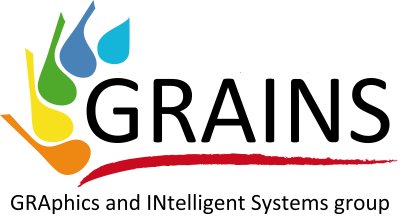-
Intelligent Systems
Intelligent Systems is a broad terms which encompasses a number of fields, ranging from artificial intelligence, to machine learning, semantic computing, analytics, etc.
GRAINS group has been largely active in the above domains since 2004, with applications in many different areas, being education one of the most representative. In fact, education is the backbone of any economy and this holds in particular for scientific and technical education as it provides skilled manpower, which greatly contributes to the growth of industrial systems and society as a whole. As a consequence of globalization there is an urgent need to renovate education systems due to rapid changes taking place in the technological perspective.
"Information has gone from scarce to superabundant. That brings huge new benefits […] but also big headaches". This sentence is contained in a special report of The Economist, published in 2010 and is ever more true: to make an example, the number of websites has recently reached the one billion milestone, whereas end-users actively contribute to the creation of new contents available on the internet, in the Web 2.0 view.
By considering the above context, the main objective of intelligent systems is to develop expert systems able to identify relevant knowledge from collected data, in order to solve complex problems and/or to automate tasks usually carried out by an expert. Such systems could relieve end users from the burden to manually process a huge amount of information, in a variety of fields, from health, to business, government, science, etc.
In this scenario, the GRAINS group has worked on the design and implementation of expert systems relying on semantic technologies for education and by participating in and coordinating a number of projects on lifelong learning. In fact, as reported in the Guest Editor's Introduction of the April 2014 issue of Computing Now on "Semantics in Education", semantics could play a key role in transforming documents into machine processable information being able to create a network of interlinked concepts, capturing human knowledge. In this view, the benefits for the learning dimension could be various, ranging from the creation of intelligent tutoring systems, to the identification of overlaps between courses for a better course design, to easing the access to learning resources, etc.
In particular, the GRAINS group has a) contributed to the creation of ontologies formalizing the structure of qualifications belonging to different European countries as well as the European Qualification Framework; b) developed a semantic-based system for finding common or missing learning units across transnational qualifications; c) designed a semantic platform for matching job offers and demands; d) developed a recommender system for learning resources with the aim to fill potential competency gaps; e) investigated approaches for producing graphical representations for non-skilled users.
Current research activities are devoted to natural language processing of qualifications, and learners’ knowledge, skills and competences, as well as to identification of hierarchical relationships between learning outcomes.
Moreover, activities are in progress in a number of other domains, encompassing decision support systems, autonomous vehicles, analytics, etc.


